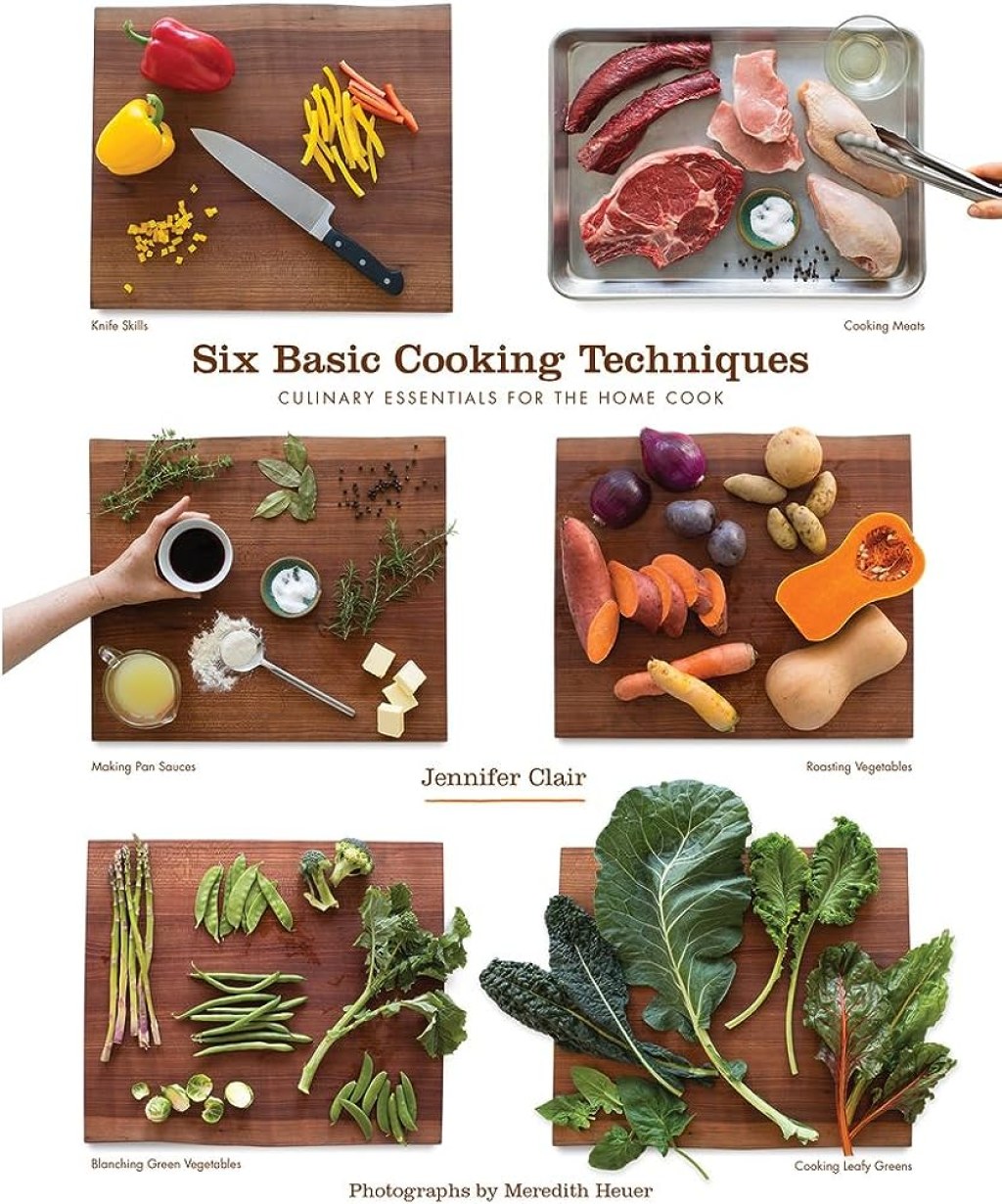Cooking Techniques at Home
Introduction
Greetings, Friends! In this article, we will explore various cooking techniques that you can practice in the comfort of your own home. Cooking is not only a necessity but also a creative and enjoyable activity. By learning different techniques, you can enhance your culinary skills and create delicious meals for yourself and your loved ones. So let’s dive into the world of cooking techniques and discover new ways to elevate your home-cooked dishes!
What are Cooking Techniques?
🍳 Cooking techniques refer to a set of methods and practices that are used to prepare and cook food. These techniques involve specific steps, tools, and skills that contribute to the overall taste, texture, and appearance of the dishes. By understanding different cooking techniques, you can master the art of cooking and unleash your creativity in the kitchen.
Who Can Benefit from Learning Cooking Techniques?

Image Source: media-amazon.com
🍴 Cooking techniques are beneficial for everyone, from beginners to experienced cooks. If you are a novice in the kitchen, learning cooking techniques will help you gain confidence and improve your cooking skills. For seasoned cooks, exploring new techniques can bring excitement and innovation to their culinary repertoire.
When to Use Different Cooking Techniques?
⏰ Different cooking techniques are suitable for different ingredients and recipes. For example, grilling is perfect for meats and vegetables, while baking is ideal for cakes and pastries. The choice of cooking technique depends on the desired outcome and the nature of the ingredients. By understanding when to use specific techniques, you can elevate the flavors and textures of your dishes.
Where Can You Apply Cooking Techniques?
🏡 Cooking techniques can be applied in any kitchen, whether it’s a small apartment or a spacious house. You don’t need fancy equipment or a professional kitchen to practice these techniques. With the right tools and ingredients, you can create restaurant-quality dishes right in the comfort of your own home.
Why Should You Learn Cooking Techniques?
🌟 Learning cooking techniques opens a world of culinary possibilities. By understanding different methods such as sautéing, braising, or roasting, you can transform simple ingredients into extraordinary dishes. Moreover, mastering cooking techniques allows you to experiment with flavors, textures, and presentation, making every meal a memorable experience.
How to Learn Cooking Techniques?
📚 The best way to learn cooking techniques is through practice and experimentation. Start by familiarizing yourself with the basic techniques and gradually challenge yourself with more advanced methods. You can find numerous resources such as cookbooks, online tutorials, and cooking classes that provide step-by-step instructions and tips to help you master each technique.
Advantages and Disadvantages of Cooking Techniques
Advantages
1. Versatility: Cooking techniques allow you to prepare a wide variety of dishes, from simple to complex.
2. Flavor Enhancement: By using specific techniques, you can enhance the flavors of your ingredients and create more complex taste profiles.
3. Healthier Cooking: Certain techniques, such as steaming or grilling, require less oil or fat, making them healthier options for cooking.
4. Efficiency: Cooking techniques help you optimize your time in the kitchen and ensure that your dishes are cooked evenly.
5. Creativity: Learning different techniques allows you to express your creativity and personalize your dishes.
Disadvantages
1. Skill Development: Mastering cooking techniques requires practice and patience, which may take time to develop.
2. Equipment Requirement: Certain techniques may require specific tools or equipment, which may not be readily available in every kitchen.
3. Complexity: Some techniques can be intricate and may require precision and attention to detail.
4. Learning Curve: Initially, you may face challenges when trying out new techniques, but with practice, you can overcome them.
5. Time-Consuming: Certain techniques, such as braising or slow cooking, may require longer cooking times, which may not be suitable for busy individuals.
Frequently Asked Questions (FAQ)
1. Can I learn cooking techniques without attending formal cooking classes?
Yes, you can learn cooking techniques through self-study and online resources. However, attending formal cooking classes can provide you with hands-on experience and guidance from professional chefs.
2. Are cooking techniques only for experienced cooks?
No, cooking techniques are for cooks of all levels. Beginner cooks can benefit from learning basic techniques, while experienced cooks can expand their repertoire and experiment with advanced methods.
3. How long does it take to master cooking techniques?
The time it takes to master cooking techniques varies from person to person. With regular practice and dedication, you can gradually improve your skills and become proficient in various techniques.
4. Can I modify cooking techniques to suit dietary restrictions?
Yes, cooking techniques can be modified to accommodate dietary restrictions. For example, you can substitute ingredients, adjust cooking times, or use alternative cooking methods to suit specific dietary needs.
5. Are cooking techniques applicable to all types of cuisines?
Yes, cooking techniques are applicable to various cuisines around the world. While the specific techniques may vary, the principles of heat control, ingredient preparation, and cooking methods remain consistent.
Conclusion
In conclusion, learning cooking techniques is a valuable skill that can elevate your culinary prowess. By understanding the what, who, when, where, why, and how of cooking techniques, you can transform simple ingredients into extraordinary dishes. Whether you are a beginner or an experienced cook, practicing different techniques will expand your repertoire and bring joy to your kitchen. So, embrace the art of cooking and let your creativity shine through each delicious meal you prepare!
Final Remarks
📌 The information provided in this article is intended for educational purposes only. It is always important to follow proper food safety practices and consider individual dietary needs and restrictions. Experimentation and practice are key to mastering cooking techniques, so don’t be afraid to explore and adapt them to your own cooking style. Happy cooking!